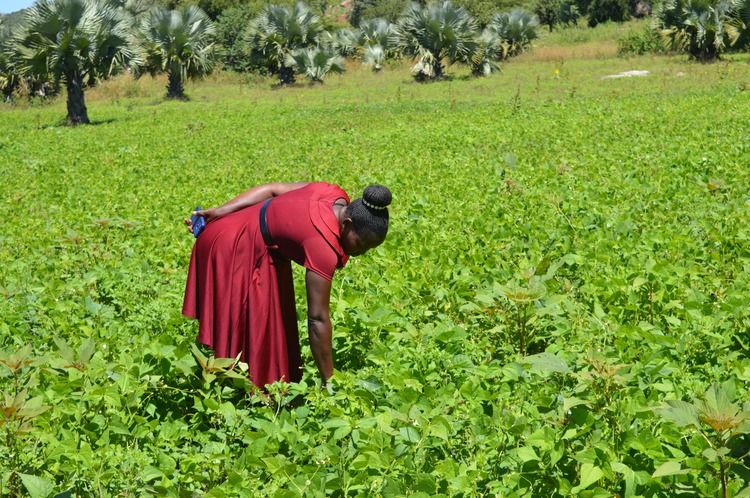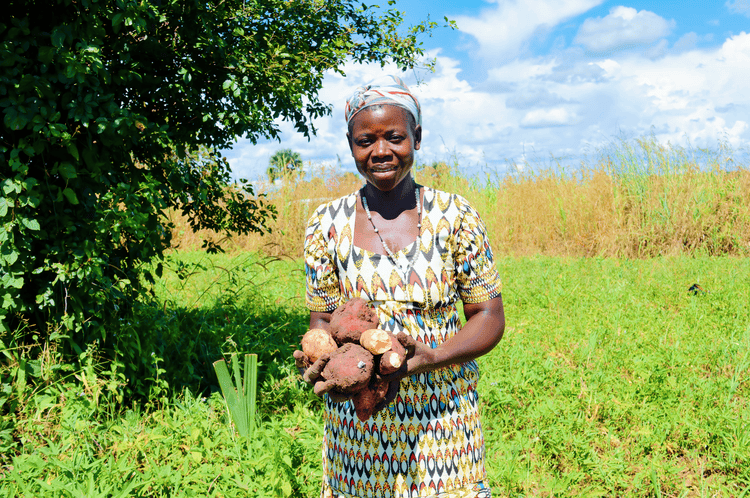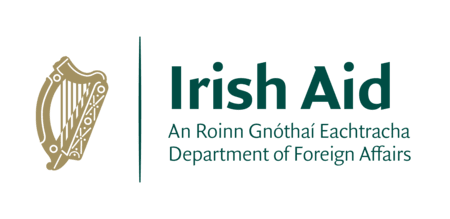 Stories
Stories
November 6, 2024 • 4 min read
In Agago District, Northern Uganda, families have long struggled with malnutrition, affecting the health and well-being of children and entire communities. But today, voices like those of Florence Oyela and Lucy Aloyo tell a story of change, thanks to the approaches implemented under the S4Nut (Systems for Resilient Food & Nutrition Security) framework by GOAL Uganda, with support from Irish Aid’s Irish Civil Society Partnership (ICSP) programme.
What is the S4Nut Framework?
The S4Nut framework works by 1). increasing production of environmentally and ecologically sustainable, nutritionally rich food using market systems development, 2). stimulating income generation and financial inclusion that supports access to adequate food, and 3). positively changing behaviours to support the consumption of adequate diets.
As a part of the package of interventions under the S4Nut framework GOAL Uganda is facilitating access to nutrient-rich crops, equipping farmers with the skills to cultivate them effectively and addressing the underlying behavioural determents of malnutrition through Nutrition Impact Positive Practices (NIPP).

GOAL’s System’s for Resilient Food and Nutrition Security (S4Nut) Framework
Accessing Nutrient-Rich Crops
Florence Oyela, a 39-year-old community leader, shares how the programme’s affordable access to nutrient-rich crops, like iron-rich beans, has transformed her farming experience.
“The subsidised rates made it possible for me to buy 20 kilograms of these beans at just 45,000 Ugandan shillings instead of the usual 150,000. This has been a huge relief for me,” she explains.
Using the Good Agronomic Practices (GAP) training she received from GOAL, Florence implemented proper planting techniques, which improved her crop yields significantly.
“I used to scatter the beans randomly, but now I follow the recommended guidelines, and the results are remarkable,” says Florence. “The proper spacing makes weeding easier, and my crops are healthier than ever.”
Lucy Aloyo, a 45-year-old farmer also echoes this sentiment. She was initially sceptical but saw quick results with the orange-flesh sweet potatoes she planted. “The potatoes matured in just two and a half months, which is much faster than the usual four months. Given the unpredictable weather, this is a lifesaver. I now have enough to eat and preserve for the dry season,” she shares, highlighting how these potatoes have boosted her household’s food security and nutrition.

Florence weeds her garden, nurturing the iron-rich beans for a healthy harvest.
A Holistic Approach to Combating Malnutrition
GOAL’s approach is not just about facilitating access to affordable seeds. It fosters community-driven, sustainable behaviour change to tackle the root causes of malnutrition. Through NIPP circles—separate gatherings for women, men, and key community members—participants engage in a hands-on, holistic programme.
NIPP circles improve the nutrition security and care practices of households either affected by, or at risk of suffering from malnutrition, through participatory nutrition, health and hygiene sanitation learning and diet diversity promotion. By emphasising skill-building using locally available resources, NIPP circles facilitate behaviour change that is both practical and adaptable to participants’ daily lives.
Shadrack Ongom, a project officer from one of GOAL’s partners, emphasises that the approach relies heavily on community involvement. “We organise groups called clusters, each consisting of 45 members from 3 villages, under the umbrella of a local health centre. We currently have nine clusters, allowing us to reach a broad base of community members totalling 405 participants.”
Farmers like Florence and Lucy are benefiting directly from the training and resources provided. GOAL and its partners sell these nutrient-rich seeds at highly subsidised rates—iron-rich beans, for instance, are offered at 70% off the market price. This affordability ensures that families, even those with limited financial means, can access these vital inputs thereby enhancing many households’ resilience regarding food and nutrition security.

Lucy proudly displays her harvest of orange-flesh sweet potatoes, a nutritious addition to her family’s meals.
Addressing Malnutrition at the National Level
The efforts in Agago are part of a larger battle against malnutrition in Uganda. According to the Ministry of Health, malnutrition remains a significant challenge, particularly for children and women of reproductive age. Over one-third of children under five (approximately 2.4 million) are stunted, and nearly half of them, along with a quarter of women of childbearing age, suffer from anaemia.
Causes include inadequate dietary practices, low breastfeeding rates, and early pregnancies leading to low birth-weight babies. The consequences are severe, with almost 40% of deaths among children under five linked to undernutrition. Nutrition Annual Health Sector Performance Report 2021/22
GOAL’s approach, supported by Irish Aid’s ICSP programme, is tackling these statistics head-on. By increasing access to nutrient-rich crops, equipping farmers with the skills to cultivate them effectively and addressing the underlying behavioural determents of malnutrition, GOAL aims to improve health outcomes for families across Agago District. The hope is to expand and reach even more communities, ensuring that no child suffers the devastating effects of malnutrition.
Through the experiences of women like Florence and Lucy, it is evident that S4Nut interventions are contributing positively to efforts to achieve greater food and nutrition security and improved health in their community.
Learn more about GOAL’s work with Irish Aid.

